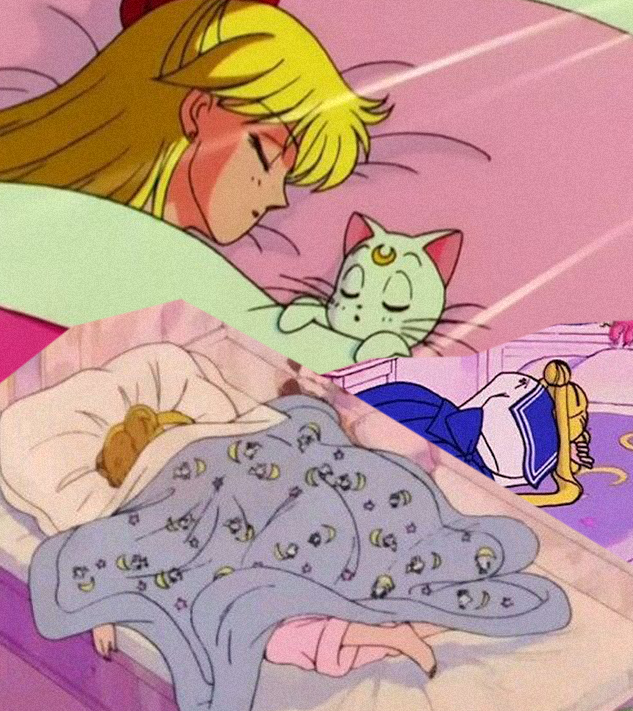Reframing Rot: How Laziness Became Commodified
Make it stand out
Self care has shaped the early 2020s: The path to enlightenment has become entwined with the notion of needing to make use out of every waking moment, having different shaped ice in each thermal cupped beverage and wearing a different loungewear set each day. It’s become a universal understanding that if we inject our days with copious streams of self-care, the possibility of feeling depressed, stagnant or stressed out ought to be almost impossible. All you need is an aesthetic to-do list on a pink iPad to consult each morning. This overly-dynamic lifestyle is now being challenged, and in its place comes its festering, unproductive litter sister.
Bed rotting, a term first coined on TikTok, culminates in the mindset of reclaiming the time you spend in bed and embracing the art of barely existing. As a response to the highly consumerist entity of the current self care landscape, bed rotting began not only as an act that was non-expectant and affordable, but entirely personal - how you choose to rot is your business so long as you’re doing it under a duvet.
At its core, bed rotting removed the judgement that swims in contemporary wellness circles, the one that typically looks down on those who choose ‘low-culture’ means - from TV binging to doomscrolling - to enact self-restoration. Bed rotting embraces the fact that after days, weeks and months spent enduring the constant stimulation of the spiralling world around us, most of the time, all we can really manage when faced with some time to ourselves, is the desire simply to turn our brains off and enjoy the most minimal of hobbies.
___STEADY_PAYWALL___
Bed rotting is not only about what we do in our beds, but how we appear whilst doing it. The cult of self-care has become fright with notions of purity and cleanliness: clean-living, clean girl make-up, eating grain free foods; to embrace the rot instead is to reject any semblance of feeling ashamed of our unkemptness, our days where we’re simply not feeling it. Hair goes unwashed, our skin is bare, we’ve managed to reach the pantaloon stage of our joggers riding up to our calves. Previously referred to as goblin mode, the gross behaviours or questionable hygiene of a person partaking in bed rotting stand tall in opposition against the idea that a person must look well to feel better.
“Bed rotting embraces the fact that after days, weeks and months spent enduring the constant stimulation of the spiralling world around us, most of the time, all we can really manage when faced with some time to ourselves, is the desire simply to turn our brains off and enjoy the most minimal of hobbies.”
While bed rotting began as an effective weapon against the self-care movement, its expanding popularity on TikTok and elsewhere has seen the trend manifest into an assembly of orchestrated bedroom set-ups and curated lifestyle montages. We’ve seen ‘Rot in bed with me’ day-in-the-life’s, ‘perfumes to rot in bed with’, bird-eye-view camera angles displaying a bedroom of billowing feather duvets, a scattering of sun-bleached paperbacks and half eaten breakfast trays. Every time I see someone pretending to be asleep with a lit candle balancing on their sheets I really have to try not to reel from the cringe. Rot is becoming cultivated and performative; we're beginning to compare our rotting states to those we see online. “If that’s what this girl thinks looking gross is like, god knows what she’d think of me” runs through my head as I swipe through my For You page. In its own way, the healing magic of rotting has become competitive.
It’s undeniable that we are in an epidemic of grossness. The sticky haired librarian that was the figurehead of Miu Miu’s Fall/Winter runway, the Instagram nail art that features teeth or fur; we have an affection for the disgusting, but only when presented to us through an editorial or aestheticised lens. Much of 19th-Century art appears as the origin source for this fascination, with countless paintings of sinewy pale women caught romanticised by their sickness. In these notable paintings, the same tropes of our infamous rotting states appear— subjects sprawled perfectly across their mattresses, faces gaunt but beautiful, petticoats extending to the floor. Where once we picked fault with these images, criticising their romanticisation of female illness, we are now coming full circle with it. Bed rotting is criticised by many as a glamourisation of poor mental health, with some even claiming it delegitimises the struggles of those who can’t choose to leave their bed, who find no recharge from their rotting.
Ultimately, I think our slow recontextualisation of self care is helping us to realise that pure, unadulterated rest really can be beneficial, even to those who thrive off being constantly booked-and-busy. But if we continue to pursue bed-rotting as an aesthetic, by curating the perfect vibe in which to unwind and relax, we’re ruining its restorative qualities by catering to the omniscient pressure of appearances, perpetuated by a digital culture that over emphasises the aesthetic importance of every moment of our lives - even our mental low.
Words: Mia Autumn Roe


